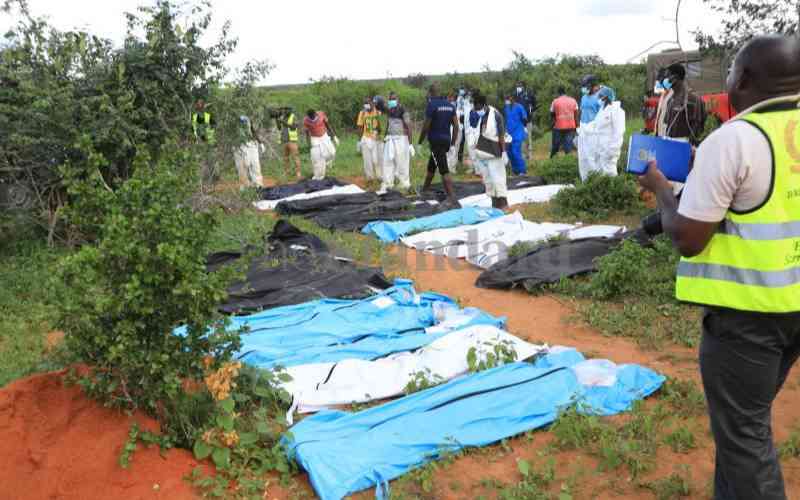×
The Standard e-Paper
Join Thousands Daily

Two Australian preachers, famous for their cultic teachings, influenced controversial preacher Paul Makenzi's doomsday teachings, a Parliamentary committee has heard.
Dave Mackay and Sherry Mackay, founders of a cult movement named 'Voice in the Desert', are believed to have passed on their cultic practices to Makenzi, who was arrested over the deaths of more than 429 Kenyans.